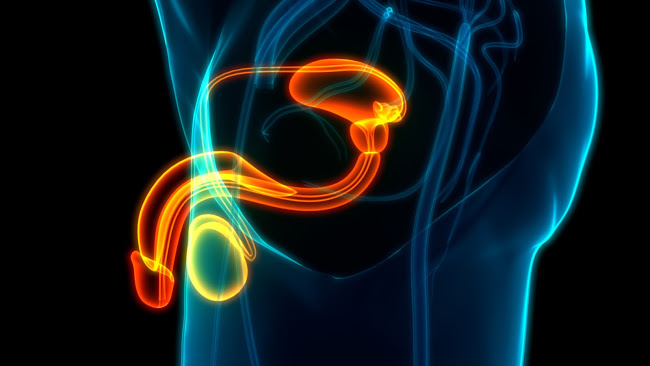
How Do Hormonal Changes Affect Sexual Health in Different Life Stages?

Sexual health is an important aspect of overall well-being, influenced significantly by hormonal changes throughout various life stages. From puberty to menopause and beyond, hormonal fluctuations play a pivotal role in shaping sexual health and function. Understanding these changes can help individuals navigate the complexities of sexual health at different ages.
Puberty: The Onset of Sexual Maturity
Puberty marks the beginning of significant hormonal changes, leading to the development of secondary sexual characteristics and the onset of reproductive capability. In both males and females, the pituitary gland increases the production of luteinizing hormone (LH) and follicle-stimulating hormone (FSH), which stimulate the gonads (testes in males and ovaries in females) to produce sex hormones.
In males, increased testosterone levels lead to the development of facial and body hair, a deeper voice, and increased muscle mass. Testosterone also drives the development of sexual desire and the capacity for erections. In females, estrogen and progesterone levels rise, resulting in breast development, the start of menstrual cycles, and the growth of body hair. These hormonal changes are closely linked to the development of sexual interest and the capability for sexual activity.
Adulthood: Hormonal Stability and Sexual Health
In adulthood, hormonal levels tend to stabilize, which generally supports consistent sexual function and health. For women, regular menstrual cycles are a sign of stable hormonal levels, while in men, steady testosterone levels are necessary for maintaining libido and erectile function.
However, various factors can disrupt this hormonal balance. Stress, illness, and lifestyle choices, such as diet and exercise, can affect hormone levels and, consequently, sexual health. For instance, chronic stress can lead to elevated levels of cortisol, which can suppress the production of sex hormones, leading to reduced libido and sexual dysfunction.
Pregnancy and Postpartum: Hormonal Fluctuations
Pregnancy brings about dramatic hormonal changes to support the developing fetus. Elevated levels of estrogen and progesterone can increase sexual desire for some women, while others may experience the opposite due to physical discomfort or fatigue.
After childbirth, hormonal shifts can affect sexual health significantly. Levels of estrogen and progesterone drop sharply, which can lead to decreased libido, vaginal dryness, and discomfort during intercourse. Additionally, the demands of caring for a newborn and potential postpartum depression can further impact sexual desire and function.
Menopause: Decline in Sex Hormones
Menopause, typically occurring between the ages of 45 and 55, signifies the end of a woman’s reproductive years and is characterized by a significant decline in estrogen and progesterone levels. These hormonal changes can lead to a variety of symptoms that affect sexual health, including vaginal dryness, thinning of vaginal tissues, and decreased libido.
For some women, hormone replacement therapy (HRT) can alleviate these symptoms and improve sexual function. Additionally, HRT has been found to have potential cardiovascular benefits, such as improving cholesterol levels and arterial health, which can reduce the risk of heart disease. However, HRT is not suitable for everyone and should be discussed with a healthcare provider to weigh the benefits and risks.
Andropause: Male Hormonal Changes with Age
Men also experience hormonal changes with age, often referred to as andropause or late-onset hypogonadism. Testosterone levels gradually decline, typically starting around age 30 and continuing at about 1% per year. This decline can lead to reduced libido, erectile dysfunction, decreased energy levels, and mood changes.
Testosterone replacement therapy (TRT) may be an option for some men experiencing significant symptoms, but it is important to consider potential side effects and consult with a healthcare professional.
Conclusion
Hormonal changes profoundly influence sexual health across different life stages. From the surge of sex hormones during puberty to the decline experienced in menopause and andropause, these fluctuations can affect libido, sexual function, and overall well-being. Understanding these changes can help individuals manage their sexual health more effectively, seeking appropriate medical advice and interventions when necessary.
References:
- American College of Obstetricians and Gynecologists. (2018). Optimizing Postpartum Care. Retrieved from https://www.acog.org/clinical/clinical-guidance/committee-opinion/articles/2018/05/optimizing-postpartum-care.
- Cleveland Clinic. (2022). Low Testosterone (Male Hypogonadism). Retrieved from https://my.clevelandclinic.org/health/diseases/15603-low-testosterone-male-hypogonadism.
- Harvard Medical School. (2024). Understanding the stress response. Retrieved from https://www.health.harvard.edu/staying-healthy/understanding-the-stress-response.
- Mayo Clinic. (2023). Precocious puberty. Retrieved from https://www.mayoclinic.org/diseases-conditions/precocious-puberty/symptoms-causes/syc-20351811.
- National Institute on Aging. (2021). Menopause: What is menopause? Retrieved from https://www.nia.nih.gov/health/menopause/what-menopause.
- “The 2022 Hormone Therapy Position Statement of The North American Menopause Society” Advisory Panel (2022). The 2022 hormone therapy position statement of The North American Menopause Society. Menopause (New York, N.Y.), 29(7), 767–794. https://doi.org/10.1097/GME.0000000000002028





